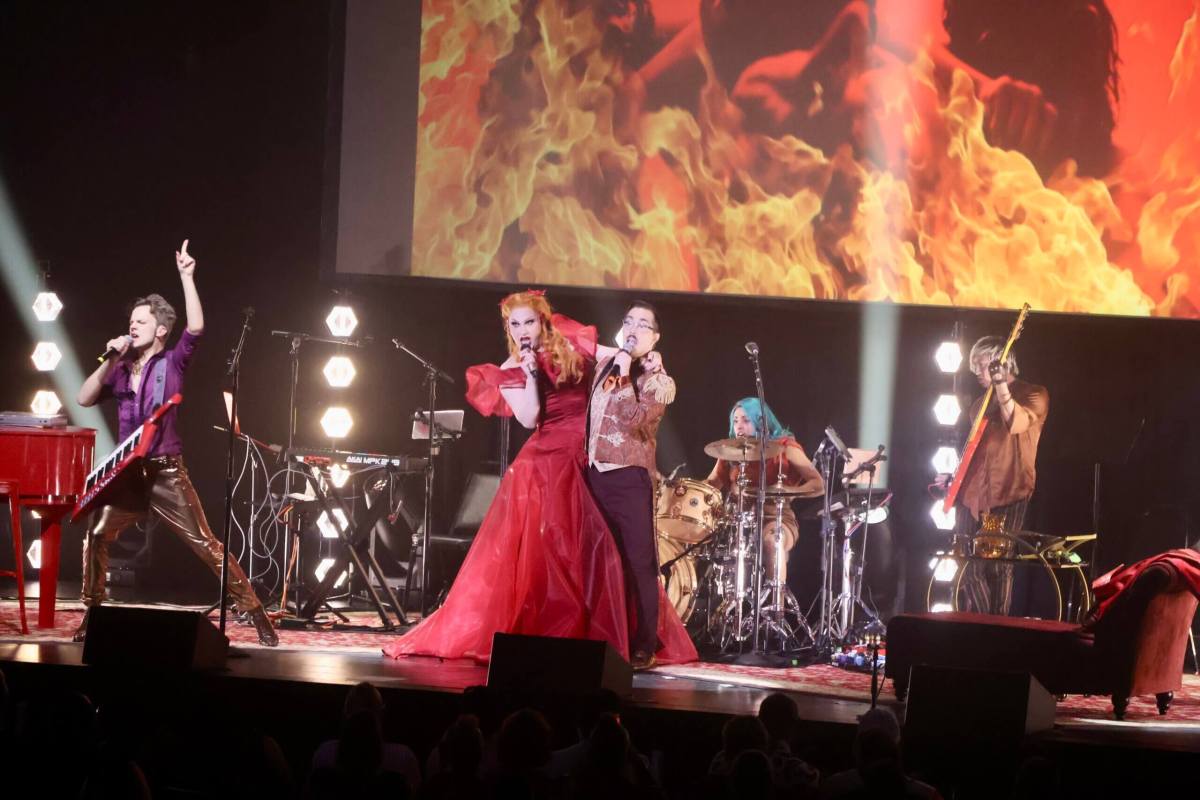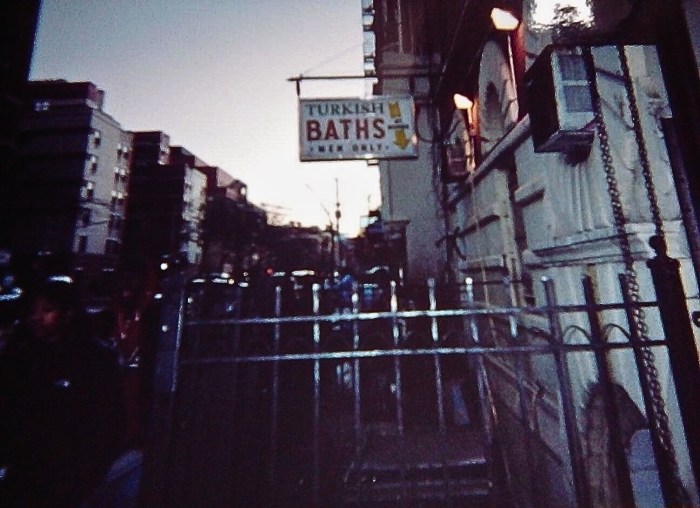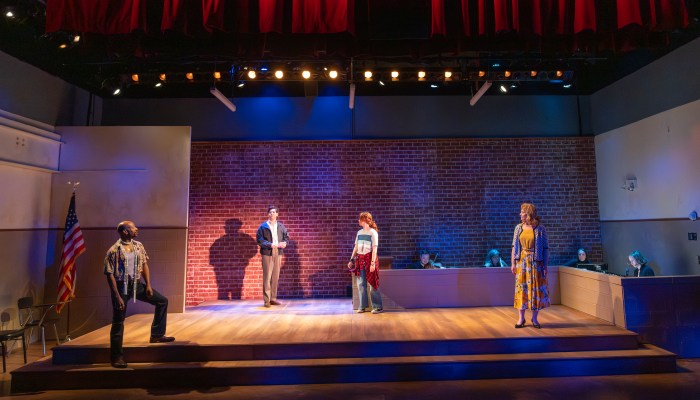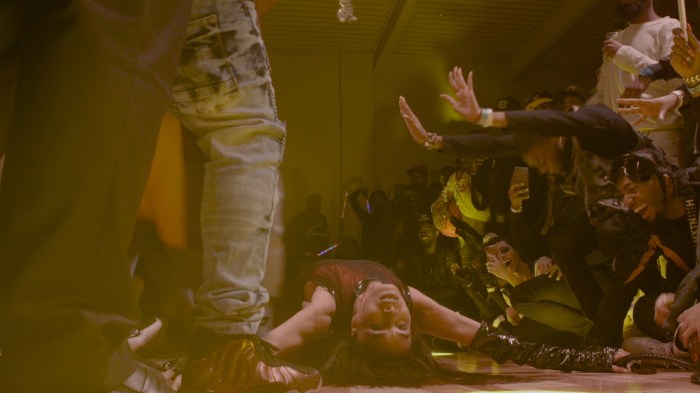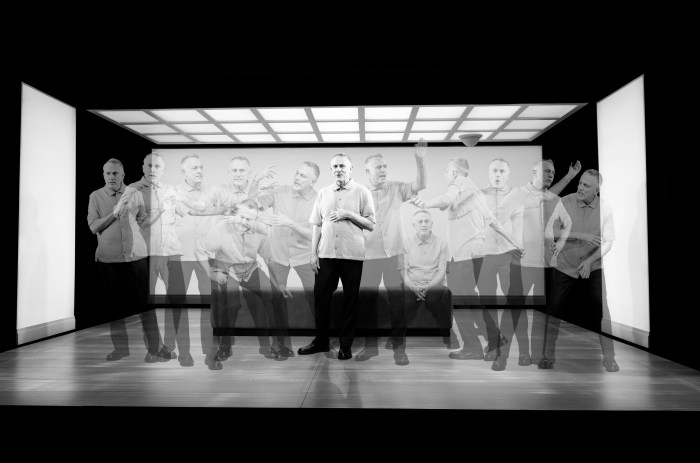Two-time RuPaul’s Drag Race winner Jinkx Monsoon is the modern working woman who really does it all. She recently wrapped up her stint as Mama Morton in Chicago on Broadway. She is set to appear in the newest season of BBC’s “Doctor Who.” She’s an award winning podcast host and practicing witch. And somehow, on top of all of that, she also has managed to debut her tour, Everything at Stake, earlier this summer. On July 1, Monsoon brought her show to King’s Theater in Flatbush. The modern day Lucille Ball dazzled the audience with her irreverent humor, sharp wit, and signature witch crackle.
Gay City News got a chance to chat with the Oregon-based queen to discuss her time in Brooklyn, life on the road, and mental health.
What was it like being in Brooklyn?
So Brooklyn was this really, really, really wonderful experience. I got to say it was one of those nights where it’s like, highest possible pressure. That’s where all our friends are going to be. It’s a big anchor city for a tour. You know it’s going to be a big night.
How has your time as Mama Morton in Chicago on Broadway affected the way you perform on tour?
You got to think about consistency like “how can I give this show tonight and give that show tomorrow?” [Being on] Broadway was not only this dream come true, but my God it taught me everything I still needed to learn as a performer. And now I feel like my most galvanized [self] and ready go out there like a Valkyrie. That’s how I see myself these days…Or maybe like the goddess Freya because she comes in on a chariot drawn by cats.
The theme of mental health plays a big role in the show. Can you tell me where the inspiration to personify mental illness came from?
I thought so deeply for so long that the way to be a good public persona was to be perfect. And the main thing is you shouldn’t be an asshole. If you feel like you’re living your life cranky and dissatisfied with things, then there might be really fixable things that can help you with that. But you have to first accept that you’re not perfect. Embrace that you’re not perfect. And then seek help you know and not help from friends because friends will do their best. But friends will impose their own ideas. Therapy is finding an impartial, objective person who just wants to help you make sense of your thoughts and emotions. And what’s sad is that it’s a privilege because not everyone can afford it. Not everyone lives in parts of the country that make it a priority. So the only way I know how to help people is to tear down any preconceived notions around [therapy]. And I think I do that through comedy. So I made these personified characters to turn something that might seem like a daunting, or unpleasant or uncomfortable conversation [into something] goofy and silly. I wanted it to read as kind of adorable. But also filthy.
Why did you decide to call the tour “Everything at Stake?”
The show is about current events, but it’s also about me, and so it was originally just about that anxiety demon. Like, “Here’s the tour you all have been begging for for years! Time to really put your money where your mouth is, lady, and I’ll show you what I can do!” So it started out very much just like that. But as art often goes, it always takes on a little bit more of a meaning than you originally intended it to.
You wrap up the show by singing The Lavender Song, a queer anthem written and sung in the 1920s in The Weimar Republic in Germany. Can you speak to why those lyrics are still so meaningful now?
So I have a playlist that’s kind of like my warm up playlist that gets me in the mood to do my makeup. And the lavender song is on that playlist, because I’m a huge fan of Uta Lemper, who sings an English translation. So she brought this song into my life a long time ago. And it’s just always been there. And the reason why I decided to do a cover and put the song back out, again, is because the day of the Colorado Springs shooting, I was so distraught and so upset, and I had a show that night. So I was trying to get myself into the mood and go through the motions. And so I put on that playlist, that song came on, and I was like, “Gosh, this song was written in the 1920s. And it applies to right now.” And, you know, I do believe culture is cyclical. I do believe that there’s an ebb and flow to things. I do believe that we have so much more behind us. But I don’t think we’re in the same circumstance. I’m not trying to compare the severity of the situation. However, we are at an access point. We are at a turning point where if we don’t make it very clear that that’s not who we want to be, those people will continue to make our lives hell on earth, which is a lyric in the song.

